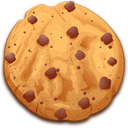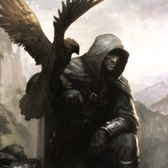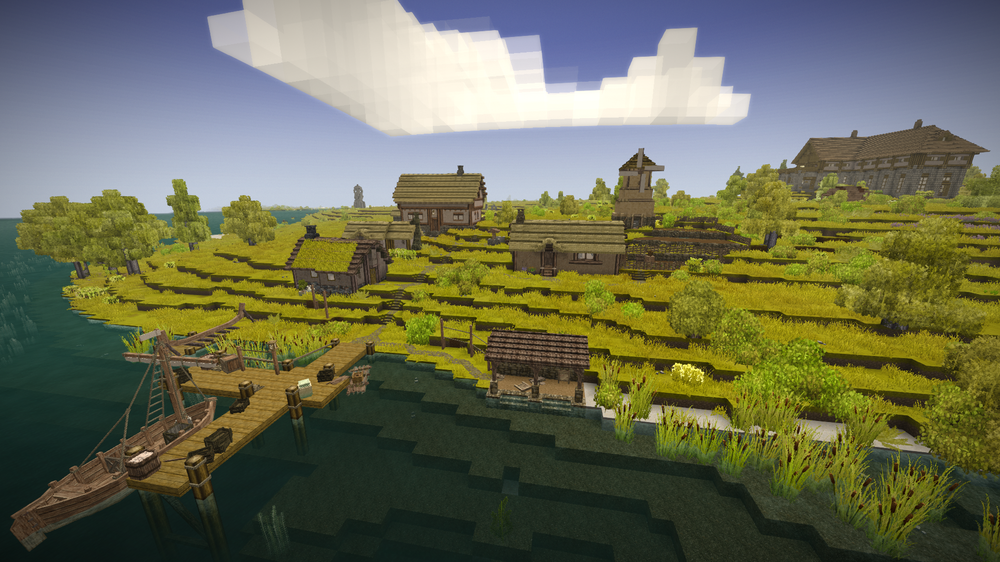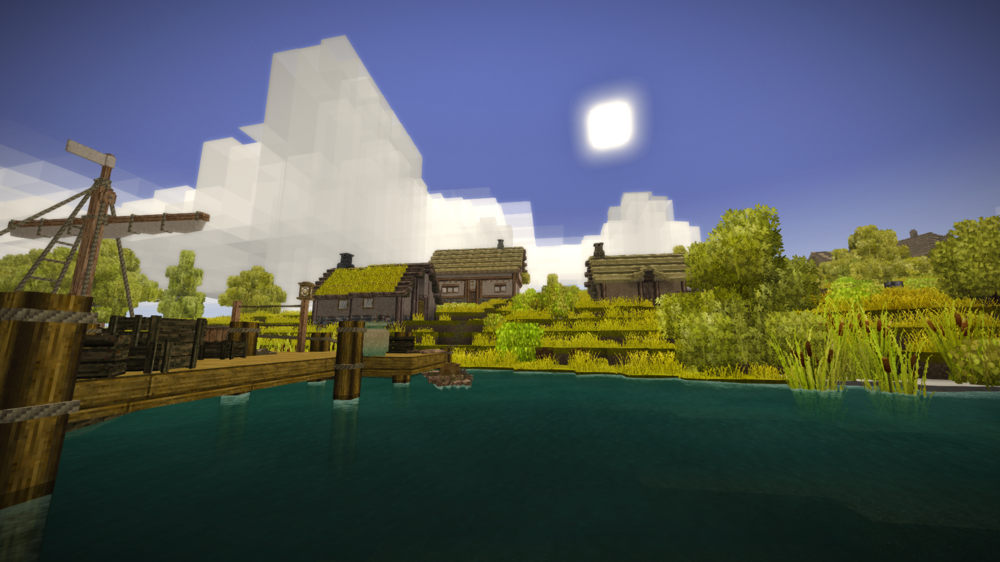-
Posts
83 -
Joined
-
Last visited
-
Days Won
1
Content Type
Profiles
Forums
Blogs
News
Store
Everything posted by AlteOgre
-
Hear ye, hear ye, a new Vintage Story server is looking for thee! We at Ilu Ambar, a whitelisted, mature, high trust community rooted in LOTR modded Minecraft have a new Vintage Story server: Ilu Ambar - Quenta Yára The server opened on monday, 2nd of June 2025. Latest server settings changes and mod additions were implemented in late december of in-game Year 9, on tuesday, 11th of November 2025 Here's an overview of the server's starting points and main features: Aimed for a lasting, friendly gameplay environment for long term themed roleplay and world building efforts. Theme for building and roleplay is medieval and in agreement with Vintage Story lore. World is persistent, with planned world border expansions (incl. with new VS updates). Server is modded with focus on vanilla mechanics and additional flavour and QoL improvements. Settings and mods make for a "new player friendly" environment on launch and first few (ca. 20!) in-game years, with increased difficulty and expanded features planned. World started without top predators and temporal storms, but as Seraphs gain strength (diet, gear, Xskills) so does their hostile environment. The server is unique in the way it gradually enhances the gameplay experience through config changes and mod additions. The whitelist secures a high trust community of mature players, requiring minimal staff involvement and working with simple, common sense rules. Initial lore is set, with players and their seraphs adding their own tales to the server lore as their immersive, light roleplay evolves. As the world evolves, its lore expands. Not a server for speed running gamers, nor for pvp and/or 'faction' focussed gameplay. If this triggered your curiosity, do not hesitate to join us in our Discord server, and to continue reading. Ilu Ambar DISCORD Server Opening lore Difficulty progression Difficulty starts low and gradually increases towards 'fairly tough for late game developed hermits'. Additional entities through mods: various predators and even outlaw NPCs will cross your path later on. Increasing Temporal Instability: Temporal Rifts are off initially, increasing Temporal Storm (TS) Frequency and Intensity, starting from 0. Settings that will be adjusted in time: player health points, hunger rate, body temperature hardiness and health regeneration rate, and creature strength and swim speed. Other difficulty enhancing features: bedspawn becomes TG spawn, decreasing respawn usages of TG's, immersion enhancing mods Mechanisms that help the player cope The vanilla learning curve involving improved health (diet) and gear. XSkills, Pets, FleeExhaustion. Corpses hold careless and/or unlucky seraph drops. Mods that enhance various controls. We support mobs radar and some helpful hud enhancements. Main world and difficulty affecting settings for the winter of in-game year 9: Per spring of in-game year 8, the pace of time has halved, resulting in days taking 96 instead of 48 real life minutes! World is huge with polar-equator distance set to 192000 blocks. Spawn is at 45° latitude and world borders are set to 32.0k from spawn. Min and max reachable latitudes are 30.0°-60.0°. Four teleporters are available at spawn, offering fast travel approx. 25k blocks in each cardinal direction. World borders will expand! World is generated with Conquest Landform, Blocklayer Overhaul and BetterForest. World generation setings: height = 320 blocks, landcover = 80%, landcover scale = 125%, upheaval = 30%, landform scale = 160%, ore occurence = 160%. Months last 30 days, days last 96 minutes, time always progresses, night does not fast forward and food decay rate is set to 35%. Player and entity stats: health = 17 hp, hunger rate = 95%, health regeneration rate = 115%, creature swim speed = 120%. Crop growth rate is set to 88%. Pick node search radius is set to 8. Sneak while setting your respawn point at your bed. Temporal rifts are enabled. Storms are enabled, with 'rare' frequency and medium duration, and drifters spawning only in dark to badly lit areas, at some distance from seraphs. Default game settings, and worse, will eventually be adopted! Strongest predators are leopards, panda bears, red wolves, wild dogs, and largest prey are moose ... and the food pyramid is gradually growing, up, up! Players can use /starterkit and maybe grab some leftovers in chests at the inn at spawn for an enhanced start. Mods (just the present ones) Th3essentials, WorldBorder, FairPlayGuardian, LoginProtection, PlayerlistRevived, PlayerCorpse, ClaimsRadar, ProspectTogether ConfigureEverything, BerryBushGrowthControl, OfflineFoodNoSpoil, WeatherTheStorm CarryOn, TheBasics, DanaTweaks, ChiseledBlockRetention, MechanicalBlockRetention, BullseyeContinued, OverhaulLib, XSkills, TraitAcquirerReborn, WarmGambeson BetterRuins, BetterRuinsLootChanges, BetterForest, RealGrapes, TraderCamps ACullinaryArtillery, ApeLanterns, AttributeRenderingLibrary, BillPosting, Bola, Braziers, Bricklayers, Butchering, CanoeMod, ExpandedFoods, ExpandedMatter, FoodShelves, HangingOilLamps, Heraldry, HeraldryBanners, Millwright, OneRoof, PurposefulStorage, QP's ChiselTools, Dressmakers, Quivers&Sheaths, RelightTorches, ShearLib, ShelfObsessed, StoneBakeOven, StoneQuarry, TailorsDelight, VanillaVariants, Vinconomy, Wool&More PetAI, Cats, CuniCulture, FoxTaming, MoreAnimals, FotSA:Caninae, FotSA:Caprolinae, FotSA:Felinae, FotSA:Pantherinae, FleeExhaustion, ScareCrow, WolfTaming Note that there are quite a few mods planned to be added in a later stage, both for the progressive difficulty and to ensure players will keep enjoying their time on our server. View of the lakeside hamlet near spawn, with a little in the back to the right, the welcoming "Inn of Ancient Tale" (Már Nathaiano Quenta Yára). We hope to welcome many new like-minded players to come play Vintage Story, or LOTR modded Minecraft with us in the coming years!
-
Building with readily available, unprocessed, cobble stones is as old as mankind's need for shelter. So is building with lumber, aka harvested wood. Obtaining timber however, is a different ball game. VS offers a decent set of mechanics to simulate that imo. If you'd really want to make a point about the game being unbalanced wrt building realism, you could argue about the lack of required constructive support for blocks made from cobble stones that can be magically applied in gravity defying arches and roofs. Building with lumber could indeed be expanded upon a bit and this has been suggested a few times before, a.o. in this thread. Btw, do note that this does not relate to the topic of this thread.
-
No way man. The forced night experience is an essential part of the game. Prepare during the day to ensure you can survive the night. Whether that be by torch lit running through the wilderness on scarce provisions to explore in early game or find some resources to bring home, by hunting or by clay forming, cooking and establishing a base with some basic materials you collected during the day. Really. That is the game. Home page quote: "... uncompromising wilderness survival ...". That speaks volumes tbh.
- 74 replies
-
- 11
-

-

-
Very nice concept! But ... eh ... why the physical appearance of a light image reflective mirror? What's light reflective on a temporal gear? Calling it a 'temporal compass' and giving it a corresponding appearance might make it a little more fitting to the theme imo.
- 30 replies
-
- 1
-

-
The temporal distortion caused by temporal storms is temporary and only lasts as long as the storm causing it lasts.
-
Wow. Original, specific and concrete.
-

1.16.0 Necessaries - now with a repairing ability! [1.1.1]
AlteOgre replied to ZigTheHedge's topic in Mod Releases
Nice work. It think the vines climbing should be included in the vanilla game. -
Whoah, surely making a lot of vintage quality immersion improvements there! All fit to ensure players will love the game for many years to come, get inspired to create mods, expansions and numerous of their own or adapted vintage storylines, and spread the word to invite many others to enjoy numerous varied single and multi-player worlds and adventures, with friends and future friends and friendly foes. Do take your time and enjoy the quality of real life besides this life project ... while pondering which faces and edges of your marvellous shiny gem to work on before it will enter the world as a brilliant beta. Cheers!
-

What are the must-haves for a "finished" Vintage Story?
AlteOgre replied to Tyron's topic in Discussion
After about 6 weeks of intensive playing and especially experiencing the early game both in SP and on servers, I think I may be able to throw in 50 cents in this conversation. It may be that my insight will change in the course of coming months or years. If so, I will update this post and bump it in some way if deemed relevant enough. Here's my current view on VS and its priorities for further development. First, my view on short term priorities, as expressed in Discord in two messages (1 & 2) : In the current state I think it's wisest to prioritise enhancing the appeal for new players, both in sp and mp, in order to gain a broader playerbase and expand server and modding communities. That would imply focus on enhancing exploration with more environmental features (flora, fauna, food sources and chains, organic resources, and structures and NPCs + interaction), and enhancing early game experience with more alternative (not easier!) ways to get going on your first explorative adventures in both sp and mp. I think it's not of much use spoiling the veterans in the community yearning for more end-game content as that need can already (at least partially) be catered for by the present modding community. Think addition of trees/bushes like yew, juniper, beech, walnut, chestnut, almond, hazel and holly, and vines for an alternative for twine, the possibility to create wickerwork for simple walls and wattle and daub, fishing and trapping, more herbivores and carnivores, herds, birbs and fishies, more significant inland seas, simple canoes or rafts to navigate larger bodies of water, mast as additional food source (proteins, in season!), additional edible roots (yam, cassave, peanuts), usage of resin and/or rope to reinforce tools as to enhance their durability, fruit trees, orchards with an orcharder, acres and pastures with a farmer and a simple shack, traveling NPCs like hunters and herders, maybe even bandits, various other small, humble structures of fellow survivor NPCs, possible animal companions like jackdaws, geese and small dogs, horses, donkeys and mules, etcetera. All additions that spice the early survival and exploration game and both broaden and deepen the experience for new players. Needles to say that anything added to enhance the early game will also have added value to late game, through various recipes and mechanics connected to later development stages, whether that be via adjustments/additions in the vanilla game or through the creativity of the existing modding community. Second, my thoughts on 'When will VS be finished for beta-release?': Realisation of a significant part of an early phase experience expansion as described above. This to ensure the game attracts a sufficienlty broad audience that actually keeps on playing in both new sp and mp worlds (multiple server activity) because they enjoy the early phase of the game because of its attractive diversity. Improvement of the early game experience on servers in line with these two suggestions, both aimed to ensure it will be appealing for players to try out new servers, to broaden their horizon, expand their network within the VS community and feed new initiatives for servers and mods, which on their turn serve to expand the VS player community (and business!): Progress of time reference: world-chunk-player Options for server management to ensure pleasant new player experience Expanded the 'lore' of the game and the rewards related to unravelling it in-game to such an extent that most players experience a persistent urge and joy to keep exploring the world until they discocered it all, even after they fully completed the technology development tree and started building and chiselling their ass off. Made sure that creation of mods/modpacks aimed to create alternative Vintage Stories are sufficiently supported with the mods API. Relevant features to think of in this respect are: Easy VS modding through adjustment of anything that does not require code modifications: textures, speech banks, item names, recipes, addition of structures, NPCs and interactions, and similar features. This also enables the less gifted coders to modify the game in order to create their own 'Vintage Story' based on the foundations of the vanilla game. World generation alternatives like alternative biome configurations, additional flora, fauna and structure types, and additional NPCs. Preferably also supporting some form of 'map based world generation' in the same manner as that was done for the LOTRmod for Minecraft. This enables modders to create their own fantasy worlds, which can tremendously broaden the storyline options for players in both sp and mp to enjoy. As noted, I may get some more/altered insights later on, but for now, this should do. Hope this may help a bit in getting this already great game and brand reach new heights. Cheers! -
In addition to the guidelines already provided above, based on experience of moderating thousands of suggestions for the LOTRmod for Minecraft, I wish to suggest the following : Urge people to: only post concrete and specific suggestions. Concrete as in addressing the what, why and how. Not just "Add edible nuts to drop from some trees", but provide information on which trees, under which circumstances and give an indication on how many, how nutritious they could be and if they could be processed or have other further uses. And specific, as in no wish lists on collected random, unrelated topics. stay on-topic in suggestion threads and in their original posts. Good on-topic feedback and discussion may lead to deviations and derivations that can initiate other new useful suggestions, so don't be too strict in it. Avoid derailing though, as that is counterproductive to anyone with an interest. not hesitate to update original posts with any valuable insight gathered, whether that be from feedback obtained in the thread or elsewhere. focus on suggestions to improve current features and/or well fleshed out suggestions regarding (explicitety stated) planned features. Create and maintain a What-not-to-Suggest (WntS) list, which may include: anything mentioned in FAQ or planned features posted by or on behalf of the developers. any subject specifically listed in the WntS list. anything that first requires planned features to be implemented. easter eggs of any kind. They're the developers joy. any imaginable real life addition unless of specific potential added value to the existing, and planned features. Vintage Story is a game with limited scope, a creation of its makers who can draw near limitless inspiration from the world. They don't need players to cough up the obvious and spam either this forum or the Discord #suggestions channel. The more noise, the smaller the chances developers will notice any useful gems hidden in the suggestion flood. anything too obvious. Possibly consider active moderation and/or record keeping of categorised subjects where the records are available to anyone and to be referenced by anyone considering to add a new suggestion to the bulk. Yes, that would require dedication.
-
I agree with the main sentiment that it can be quite devastating for 'unlucky' player experiences that some specifically valuable rock types are hard to find. But I do support the main starting points related to survival and exploration, based on the realistic approach of the game. So, I'd not support a major change. Instead, in order to improve the average player experience (some get lucky, some don't), I would propose is to just tweak the occurence and average area coverage of instances of chalk, limestone and halite. Make their deposits occur a tad more frequent (a tad less rare) compared to other sedimentary resp. special deposits, but also reduce their deposit area/volume sizes, so their overall global average relative presence isn't affected.
-
And I'm gone.
-
Can I please be allowed to contribute to the Wiki? I registered as AlteOgre. Additional question: Is there a communication platform where wiki contributors exchange info on to-do, actions, moderation and other usual wiki related talk? Like a dedicated part of this forum or a dedicated Discord server? Edit: Nevermind, found it!



